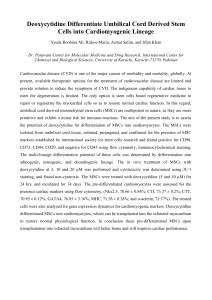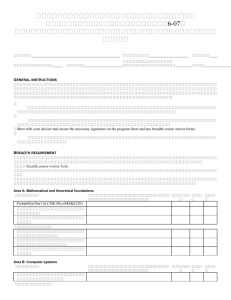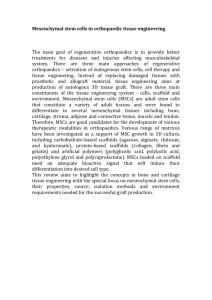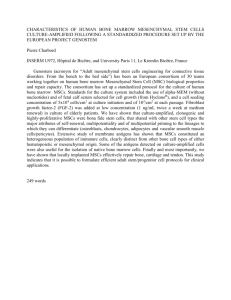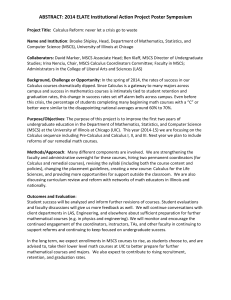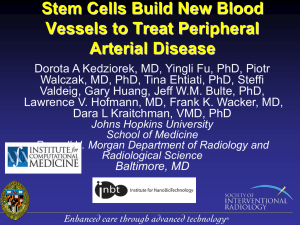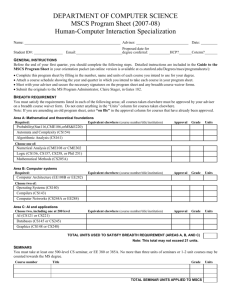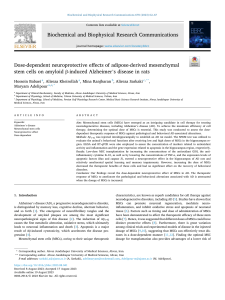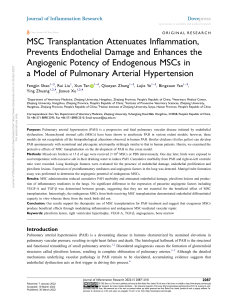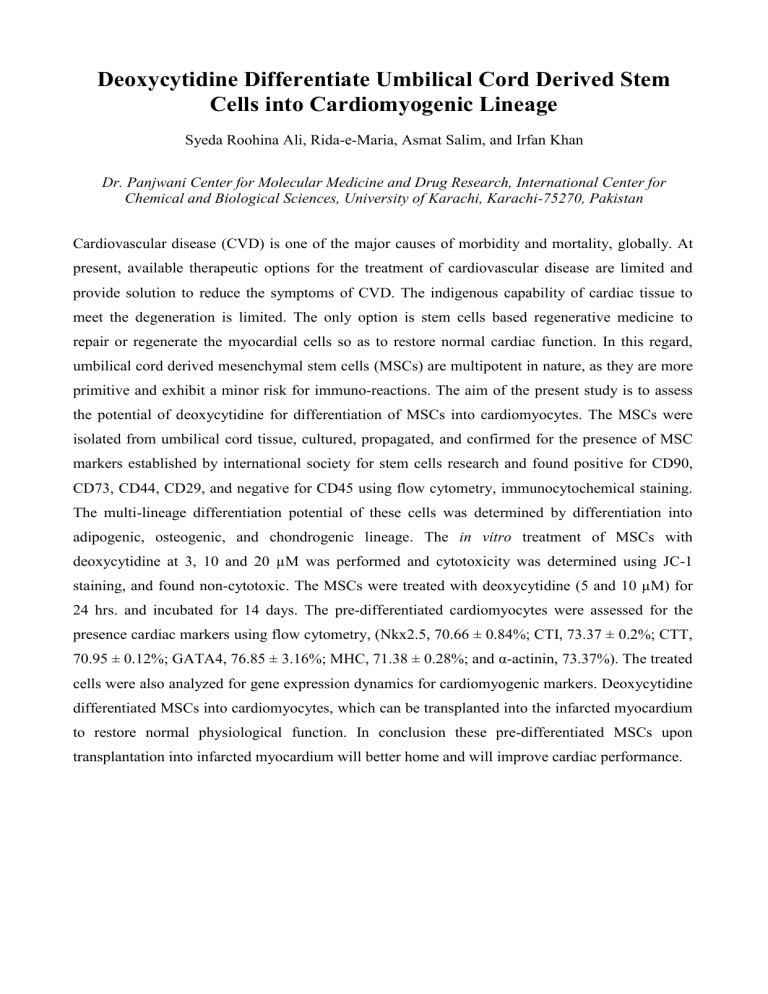
Deoxycytidine Differentiate Umbilical Cord Derived Stem Cells into Cardiomyogenic Lineage Syeda Roohina Ali, Rida-e-Maria, Asmat Salim, and Irfan Khan Dr. Panjwani Center for Molecular Medicine and Drug Research, International Center for Chemical and Biological Sciences, University of Karachi, Karachi-75270, Pakistan Cardiovascular disease (CVD) is one of the major causes of morbidity and mortality, globally. At present, available therapeutic options for the treatment of cardiovascular disease are limited and provide solution to reduce the symptoms of CVD. The indigenous capability of cardiac tissue to meet the degeneration is limited. The only option is stem cells based regenerative medicine to repair or regenerate the myocardial cells so as to restore normal cardiac function. In this regard, umbilical cord derived mesenchymal stem cells (MSCs) are multipotent in nature, as they are more primitive and exhibit a minor risk for immuno-reactions. The aim of the present study is to assess the potential of deoxycytidine for differentiation of MSCs into cardiomyocytes. The MSCs were isolated from umbilical cord tissue, cultured, propagated, and confirmed for the presence of MSC markers established by international society for stem cells research and found positive for CD90, CD73, CD44, CD29, and negative for CD45 using flow cytometry, immunocytochemical staining. The multi-lineage differentiation potential of these cells was determined by differentiation into adipogenic, osteogenic, and chondrogenic lineage. The in vitro treatment of MSCs with deoxycytidine at 3, 10 and 20 µM was performed and cytotoxicity was determined using JC-1 staining, and found non-cytotoxic. The MSCs were treated with deoxycytidine (5 and 10 µM) for 24 hrs. and incubated for 14 days. The pre-differentiated cardiomyocytes were assessed for the presence cardiac markers using flow cytometry, (Nkx2.5, 70.66 ± 0.84%; CTI, 73.37 ± 0.2%; CTT, 70.95 ± 0.12%; GATA4, 76.85 ± 3.16%; MHC, 71.38 ± 0.28%; and α-actinin, 73.37%). The treated cells were also analyzed for gene expression dynamics for cardiomyogenic markers. Deoxycytidine differentiated MSCs into cardiomyocytes, which can be transplanted into the infarcted myocardium to restore normal physiological function. In conclusion these pre-differentiated MSCs upon transplantation into infarcted myocardium will better home and will improve cardiac performance.
